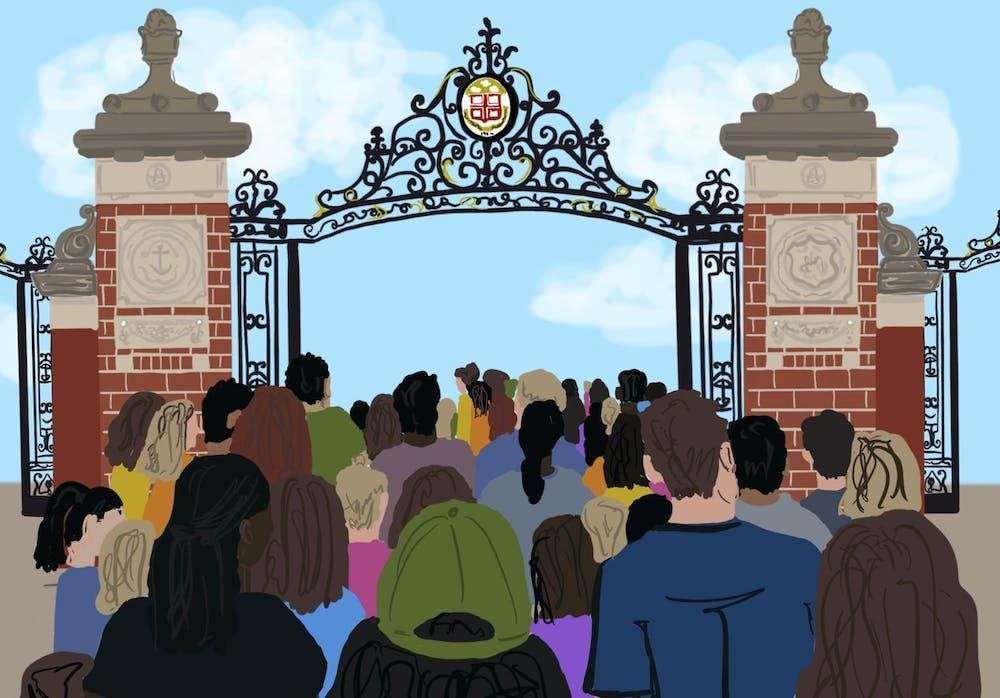As the class of 2024 begins to look beyond their time on College Hill, immediately starting graduate school may seem like the natural next step for some. But many are considering taking a gap year before committing to a graduate degree.
Michael Farrell-Rosen ’24 is one such student. Uncertain whether he plans to earn a master’s or a law degree, Farrell-Rosen said he is taking at least one gap year to gain “more experience working in a variety of environments to complement the internship experiences I've already had.”
After working on Capitol Hill this summer, he connected with professionals in the politics and policy sectors who advised him that his uncertainty was a sign to “to take a gap year or gap years and explore your possible career paths a little bit more.”
Nationwide, “75 to 85 percent of first-year students have taken time after graduating to work or get advanced degrees” before entering law school, wrote Pre-Law Advisor, Legal Expert in Residence and Senior Fellow in International and Public Affairs Ari Gabinet in an email to The Herald.
According to Gabinet, 85.2% of Brown graduates who matriculated to law school this fall took one or multiple gap years, with the majority of students completing undergraduate education before 2017.
Devin Juros ’23, who is on a gap year applying for PhD programs in neuroscience, also consulted with several industry experts, including members of his lab and his concentration advisor, before making the decision.
“I was worried that by going right into the PhD program and spending so much time on the application and interviews, I wouldn’t have enough time to do everything else that I wanted to do my senior year,” he said.
Nearly two-thirds of medical students nationwide take one or multiple gap years before starting their MD program, according to the Association of American Medical Colleges.
“Overall, I feel like it’s been a very positive experience, and I’m very glad that I did take a gap year,” Juros said.
When advising students, Gabinet wrote that “there is no standardized advice” on whether to take a gap year — nor is there one standard experience that students partake in during their gap year.
In his years as an advisor, Gabinet said he has seen Brown graduates go onto work at legal organizations, technology companies and financial institutions, as well as take fellowships, enter the Peace Corps, travel and more.
“As a team we believe that a year or two spent working, traveling or studying can be beneficial — the experience is good for you as a person,” he wrote.
Juros is continuing his work in a neuroscience lab during his gap year. This gave him the ability to “finish some of the projects that I was working on in the lab that I probably wouldn't have been able to finish if I went right into a PhD program,” he said.
Taking a gap year may also provide an advantage in some admissions processes.
According to Gabinet, “admissions rates for students going straight from college to law school is lower than admissions rates for applicants who have spent time doing other things after graduating.”
“These statistics are not random,” he wrote. “Law school admissions deans are increasingly telling us that these applicants are more attractive because they have more diverse and interesting experiences, have added maturity and readiness, and have a greater sense of purpose.”
“The extra time gave me more perspective on my future paths,” Juros said.
The way applicants highlight their gap year experiences in their essays is more important than what they choose to do during this time, Gabinet added.
“There’s also a lot of people who are immediately going into jobs with no immediate plans to seek further education,” Farrell-Rosen said, adding that this pattern is concentrated among those entering “consulting, finance and tech.”
For those who decide not to matriculate directly into graduate programs, “there are many things you can do,” Gabinet wrote, “and there’s no magic choice.”
“Up to this point, for a lot of people … the path has been a little bit more linear,” Juros said. “You go to high school then you go to college. But after college, it can be a lot more flexible and you don't have to take the most linear path.”

Owen Dahlkamp is the managing editor of newsroom on The Herald's 135th Editorial Board, overseeing the paper's news operations. Hailing from San Diego, CA, he is concentrating in Political Science and Cognitive Neuroscience with an interest in data analytics. In his free time, you can find him making spreadsheets at Coffee Exchange.





